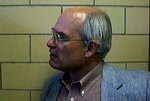This is additional material from the "cutting room floor." Originally, we thought of including examples of extremely successful scientists as a way of wrapping up chapter 1, Science. Here is our short biography of one such successful psychologist, Elizabeth Loftus.
Elizabeth Loftus currently holds joint faculty appointments. She is distinguished professor of psychology and social behavior at the University of California-Irvine and is affiliate professor of psychology and law at the University of Washington. Loftus received her BA from UCLA in 1966 and her PhD from Stanford in 1970. She began her academic career at New School University in 1970. From 1973 till the present she has worked at the psychology department at the University of Washington. In 1984, she began to serve as a law professor there too. In 2002, she was named distinguished professor at the University of California- Irvine as well (where she spends most of her time). Loftus is the author of 18 books and more than 250 articles. She has served on many editorial boards and as officer of several professional associations including the presidency of the American Psychological Society. She has also served as an expert witness on human memory in hundreds of legal cases.
At age 14, Loftus lost her mother to a drowning accident. To this day she believes that event marks a profound division in her life. Ever since that day, Loftus has seen herself as an agent for helping others. As an undergraduate at UCLA, she excelled at both math and psychology. Like Robert Sternberg, she attended Stanford and studied psychology. She married Geoffrey Loftus in graduate school. After graduating, he went to work at the University of Washington and she followed a year later (turning down an assistant professorship at Harvard to do so). Their marriage lasted 23 years, “...an accomplishment...” according to Loftus, given her work ethic. They are still friendly. Loftus fell into her first major research topic, eyewitness memory, because she wanted her research to have practical applications, and it has.
Early in her academic career (around 1972), Loftus was studying memory using pictures as stimuli. After a conversation with a man who had been convicted of killing someone in self–defense she began to use films of accidents as experimental stimuli. What she found surprised her. The participants who viewed the films gave her different answers depending on how she phrased the questions she asked them. The relationship between leading questions and eyewitness memory became her first major research project. She found that leading questions influenced eyewitness memory and that a large percentage of eyewitnesses (in her lab) insisted they had seen something that, in fact, they had never seen. They had, however, heard that thing mentioned while being questioned in an intentionally leading manner. For example, nearly 20% of participants claimed to have seen a barn in one of her films. In reality, there was no barn and only those who had been earlier asked a leading question about the non-existent barn claimed to have seen it. In 1999, the United States Department of Justice published guidelines on gathering eyewitness testimony in criminal investigations that stemmed directly from Loftus’ research. Those recommendations call for law–enforcement personnel to avoid the use of leading questions and to place only one suspect in a line-up. Loftus’ eyewitness reliability research has been called one of the best examples of how psychological research can affect public policy (Foxhall, 2000).
Later, Loftus began to study the difference between repressed memories and false memories. Repressed memories are true memories that have become unconscious for a time and then re-appear. Repressed memories of child abuse are a common example. However, some memories that appear to be repressed are not true, they are false memories. Although false memories are not true, the person believes them to be true. After observing a link between some therapists and the subsequent revelation of incriminating memories by their patients, Loftus demonstrated that false memories could be induced in a small percentage of individuals (See Chapter 3 for a more complete discussion of this research.). Her research ignited a legal and psychological controversy. Because of the large number of criminal cases based upon repressed memories, Loftus began to testify as an expert witness on human memory at hundreds of trials including those of the Hillside Strangler, O. J. Simpson, Rodney King, the Menendez brothers, and the Oklahoma City bombing. Her success in defending people accused of crimes like murder and child–molestation has created enmity from prosecutors, their witnesses, and even the public. Because of her research, her public appearances often require security personnel to be present. Her work has caused her hardship and grief while also bringing her fame and prestige. Recently, she was named as one of the top 100 most eminent psychologists of the 20th century (and the top ranked woman) putting her in the company of Freud, Skinner, and Piaget.
Reference
Foxhall, K. (2000). Suddenly, a big impact on criminal justice. Monitor on Psychology, 31 Retrived September 8, 2006 from http://www.apa.org/monitor/jan00/pi4.html
Subscribe to:
Post Comments (Atom)



12 comments:
Post a Comment